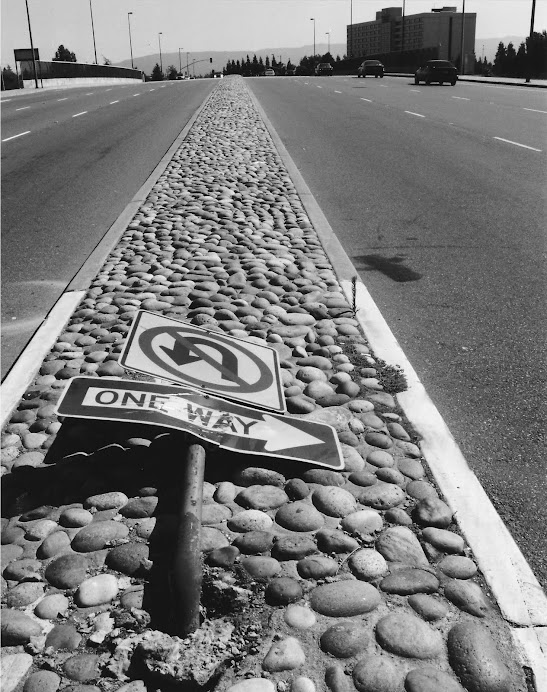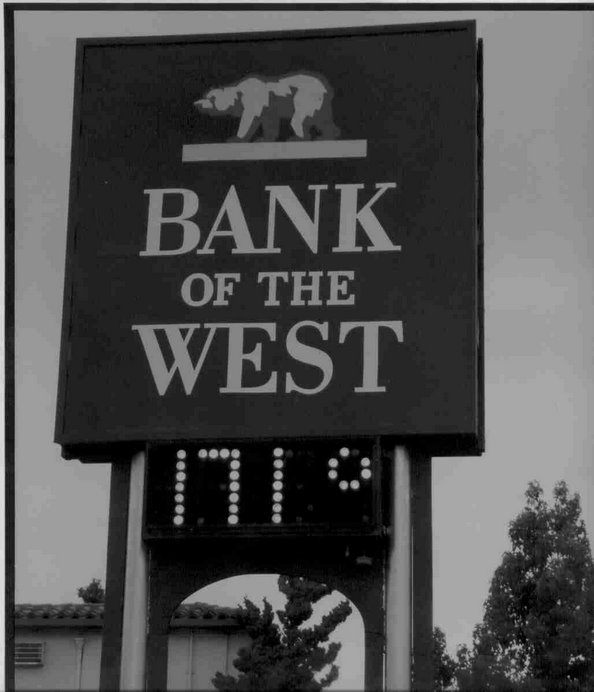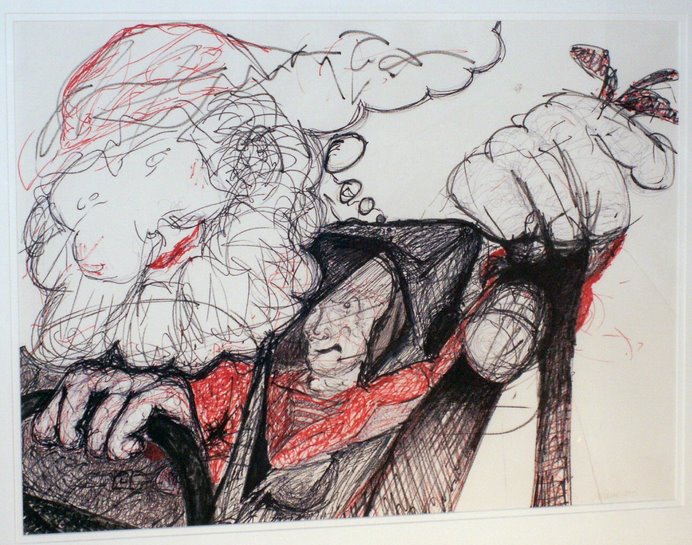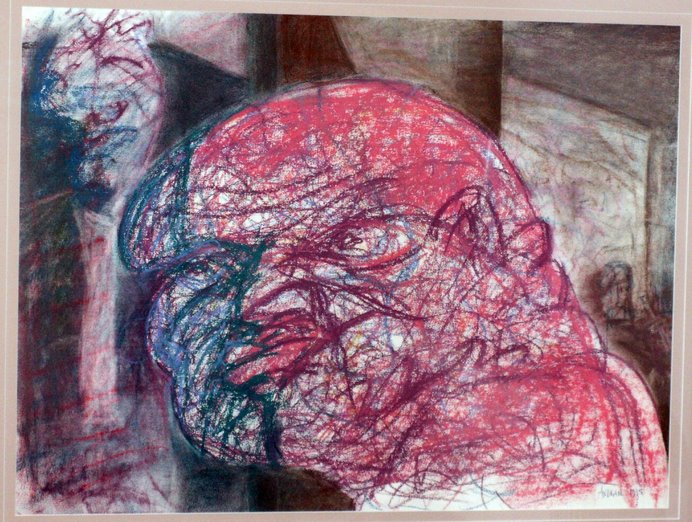Something
new. Not improved necessarily, but new
in the sense that the page was blank, and there were no previous ideas which
shaped or biased what was brought to the page at the moment.
The page
existed in his mind. He had spent so
much time sitting in front of pages, hoping for immaculate inspiration, that he
eventually just created a page in his head, gave it a pen, and instructed it to
write down any inspiring events as they occurred to him. Then he got up and went out into the world in
search of inspirations. If they wouldn't
come to him, he'd go find them.
As Thistle
continued to walk away from the restaurant, he tried to think about the man
whose life had ended. He wondered just
how much he had had to do with the end of the man's life. He had seen the future, the bridge where the
truck overturned, the strip of highway.
He just hadn't come up with the explicit time context. Was that a morning sun or an evening
sun? And where was the bridge?
The
bridge. The bridge, as a metaphor, was
an icon in his past. He could remember
riding across one in the Chevy pick-up, his father's belly bouncing beneath a
striped t-shirt syncopated with the rhythm of the bridge's undulations. That same bridge had become more of a symbol
of conflict in his life as a teen; it seemed that every time he came to the
start of one side, the struggle began between forces wanting to get to the
other side and forces wanting to try another side. Should he, once again, follow the path of so
many others, crossing safely over the river, passing on to the next thought and
action of routine? Or could he find a
different path, one hidden underneath the bridge somewhere? He would imagine his vehicle prying through
the guard rail, gracefully arching over the side and down, into the shallow
river. He imagined himself still behind
the wheel as the car patiently filled with water. He imagined the questions he would be asking
then.
This was
not that bridge. This bridge had arrived
uninvited, unannounced; had breached the gap between existence and
non-existence. Between Life and
Death. He would cross that bridge when
he came upon it, too.
Why were
these scenarios so dominant, so prominent in his thoughts while he was an
adolescent? When he was five, it didn't
matter what clothes he was wearing, how much he weighed, if he'd ever fall in
love, if he'd get married. He didn't
think of what it would be like to die.
He didn't think of how to die.
For some
reason, he was still alive, whether he thought about it or not, whether he
thought about death or not; He continued on, along with the questions. Which ones were the most important? Which ones could he realistically hope to
answer?
There were
answers to some of the questions. Some
of them just took a long time to explain.
Especially if you start off in the wrong direction.
And there
was no way to really know if you were going the right way. Or if you were getting anywhere. That perception could only prove itself with
time.
So he tried
not to think about it. He looked at what
he had done with his life and saw an outline to a vast, ornate work of
art. He saw that it would take many
hours of organization and scrambling and unscrambling to get it right. Could he bring forth the discipline to get
the job done?
Could he
tell a story with his life?







No comments:
Post a Comment